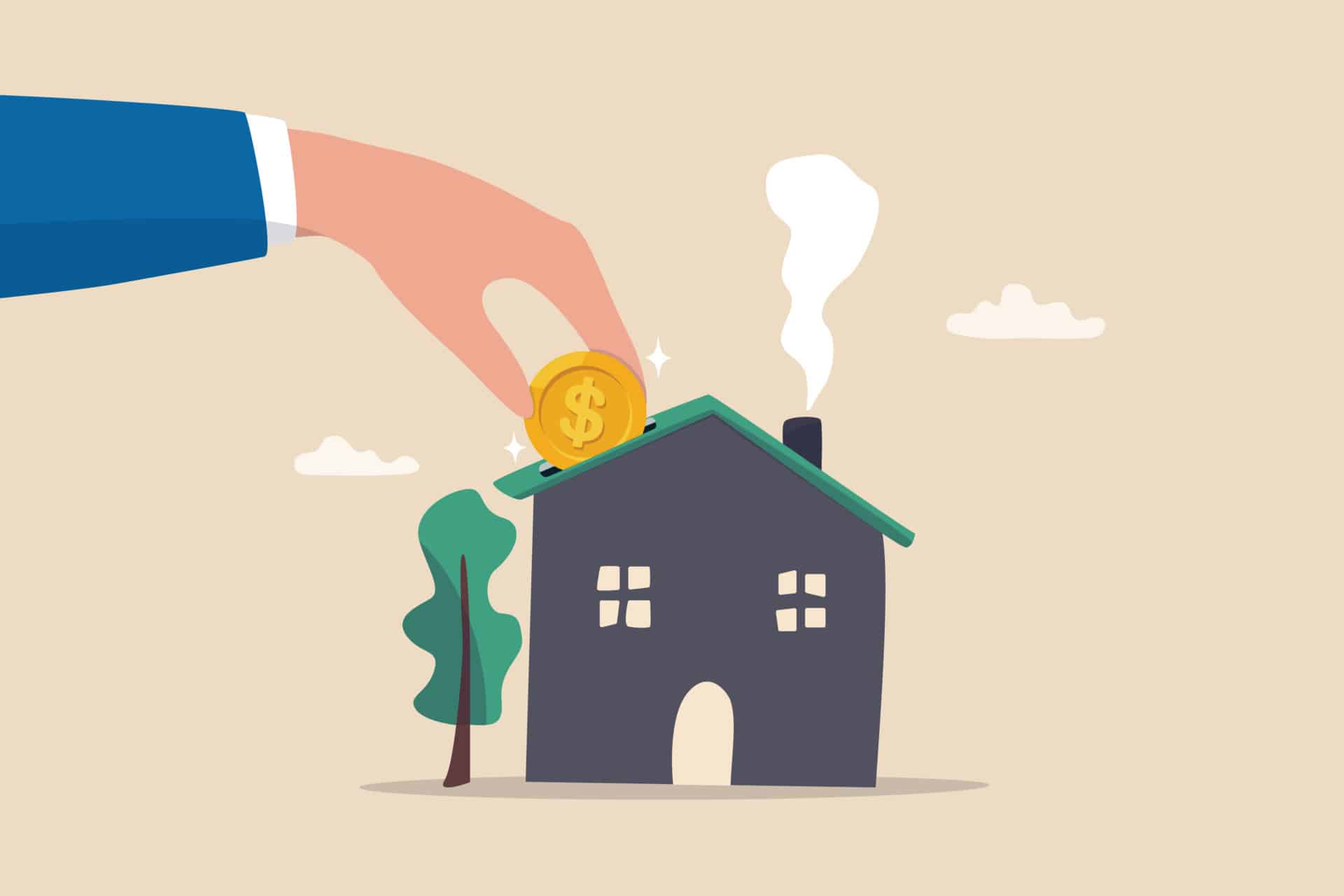
Are you looking to invest in the UK but uncertain about where to put your money? Are you interested in low-risk, steady investments that secure a return on your investment? Then you’re in the right place!
At Yield Investing, our investment developments focus on a specific type of property investment: social housing.
Which begs the question: “Is social housing profitable?”
Well, the truth is: it absolutely can be!
In this guide, we’ll discuss the facts, figures and case studies related to social housing in the UK. Buckle up as we help you navigate why investing in social housing can be highly profitable and beneficial for everyone involved.
Is Social Housing Profitable? (The Short Answer)
Yes, investing in social housing in the UK is profitable, primarily due to the overtly high demand and an incongruous inadequate supply of homes in this sector.
For one, a 2023 statistic from Shelter showed that 1.2 million households in England alone were on waiting lists for homes due to a lack of availability in the market. This figure represents a 5% increase in demand over the past two years. The country has also recorded a loss of 200,000 of the most affordable social homes in the past ten years and a net loss of 14,100 social homes between 2021 and 2022 alone, primarily due to sales and demolitions.
At this stage, it’s clear that there’s an undersupply of social housing in the UK and an enormous demand for it, making this a highly lucrative opportunity for investors looking for profitable investments with low risk.
If this has piqued your interest, read on, as we’ll provide more data to back this up later in this guide.
What is Social Housing?
In the UK, social housing generally refers to rented housing provided at below-market rents to vulnerable tenants who may struggle to afford housing on the open market. This housing scheme helps ensure everyone has access to safe and secure dwellings.
The criteria for social housing eligibility can vary by locality and specific housing provider, but in general, social housing is aimed at:
- People on low incomes: Households that cannot afford to buy or rent homes at market rates might qualify for social housing.
- People with particular needs: This might include elderly individuals, people with disabilities, or those with specific medical conditions.
- Homeless individuals and families: Local authorities have a duty to house certain categories of homeless people.
- Victims of domestic violence or other forms of abuse: These individuals might be prioritised for social housing as a means of providing them with a safe and secure living environment.
The main difference between affordable and standard housing lies in who pays for it. The government, charitable trusts, or other external organisations subsidises the rent payments for social housing. In contrast, private organisations or individuals build regular/standard properties — with no subsidy.
Who Can Invest in Social Housing Properties?
If you’re interested in how to make money in social housing and have been considering investing in the sector but aren’t sure if you’re eligible, the good news is you likely are.
Here’s a rundown of different bodies that may venture into investments in social housing:
- Corporate investors
- Investment funds
- Accredited private investors
- Individual investors
Let’s look at each in a bit more detail.
1. Corporate Investors
These groups can include institutions, sovereign wealth funds, and pension funds seeking long-term investments to diversify their portfolios.
2. Investment Funds
These are typically open-ended or closed-ended funds. They’re usually sourced by a group of investors who collectively invest in a financial instrument, such as stocks or real estate.
3. Accredited Private Investors
Otherwise known as high net worth individuals (HNWIs), this group of investors must meet the UK’s accredited investor criteria, which require that investors have a net worth of at least £250,000 or have a minimum income of £100,000 per year. This group often has access to different types of investments, such as buy-to-let schemes or co-investment vehicles through crowd funders and venture capitalists.
4. Individual Investors
These people may not meet the criteria of an accredited investor but are interested in investing in social housing to secure their funds. At Yield Investing, most of our clientele revolves around this category of investors, and we help them secure a unit in our already completed affordable social housing options. This ensures they have a steady return on their investments and are confident their wealth is preserved at a predictable rate for an extended period.
Why is Social Housing Profitable? (Outlining the Business Case)
When considering social housing, looking at the business case for these types of investments is essential.
As a property investor, you might think: what’s in it for me? Well, we can tell you the answer is simply tremendous returns!
The UK currently faces a growing housing crisis, with more people than ever needing affordable homes and the government unable to meet the demand. This allows investors to capitalise on a high-yielding asset class and make serious money.
Let’s look at some numbers…
In 2019, HSBC reported that their social housing investments had delivered over 8.4% average return on equity to their clients, while average rent grew by 6.8%.
So, why is social housing so attractive to investors?
Well, there are two main reasons:
- These projects often have secure rental income from government-backed tenancies.
- These properties have low void periods as tenants don’t often move around much once settled in (also due to their use of rental payments for deposit schemes).
However, as with everything else, social housing has some objections. See our article on the pros and cons of buying social housing for more info.
At Yield Investing, we have decades of experience providing low-risk property investment opportunities to our clients. Thanks to our carefully researched selection criteria and robust processes, we ensure every project offers exceptional returns. So if you’re looking for a reliable income stream with low risk, investing with Yield Investing may be worthwhile.
Is Social Housing a Good Investment? (And Why?)
Yes, social housing can be profitable for seasoned and new investors, provided they know what to look for and how to identify opportunities.
Here are the main reasons why investing in social housing is a smart financial move for property investors:
Strong Market Demand
Given the compelling statistics already outlined in this post, social housing remains in high demand in many areas. And when you market properties as affordable, it often results in faster sales at a profitable rate.
Government Commitment
The UK government is dedicated to creating more social housing options, with recent announcements of plans to increase the availability of homes at discounted rates.
Predictable Returns
Investments in social housing offer a stable and long-term yield, providing investors with confidence in their returns.
Private Investment in Social Housing: How Does It Work?
Understanding the different models available when investing in social housing is essential. There are two primary models, each with advantages and disadvantages, and they include the following:
1. Contractual Agreements
In this model, investors provide capital to purchase a property outright. The investor then receives a fixed rent from the tenants of the buildings.
While this model secures fixed returns over a specific period, the investor must ensure that the housing association or local authority they’re working with is in place and can provide them with a long-term tenancy solution.
Our property investment strategy offers a unique approach to contractual agreements by actively sourcing properties with long-term tenants already signed up and located near city centres or transportation links. This strategy secures more reliability and higher investment returns without taking excessive risks.
2. Joint Venture Agreements
Joint venture agreements involve investors partnering with a development partner who shares the risk and profit of constructing new affordable homes. Since developers typically specialise in a specific construction area, joint venture agreements allow investors to leverage their expertise while minimising costs. However, this model has more extended payback periods than the contractual model since it involves building new structures from the ground up.
Which should you go for?
When deciding between contractual and joint venture models, an important factor to consider is whether you seek high returns in a short time or long-term stability. You should also assess the potential risks of each model before committing capital to social housing projects. By doing so, you can ensure that your investment aligns with your financial goals while minimising risks.
What Are the Risks Associated With Investing in Social Housing?
Like any other investment, investing in social housing comes with risks. When investing in social housing in the UK, you need to be aware of the following five potential risks associated with investing in this sector.
1. Market Fluctuations
Economic downturns and changes in housing market conditions can impact the value of social housing properties, leading to potential losses or reduced returns for investors like any property investment.
2. Regulatory Changes
Changes in government policies and regulations, such as rent controls, zoning laws, or funding for social housing programs, can affect the profitability and viability of an investment.
3. Property Management Challenges
Managing social housing properties requires specific expertise and experience. Ineffective property management can lead to increased vacancies, tenant issues, and higher maintenance costs, which may negatively impact the return on investment (ROI).
On the bright side, when you partner with Yield Investing for ethical, affordable social housing/supported living investment, you can rest assured knowing such issues won’t arise as the entities we partner with cover tenant damage as well as maintenance and running costs throughout the lease period.
4. Location Risks
Your investment property’s location can heavily influence the success of a social housing investment. Factors like local job market conditions, crime rates, and neighbourhood amenities can impact the desirability and long-term value of the investment.
5. Construction and Development Risks
Investing in new social housing developments can involve risks related to construction delays, cost overruns, and potential disputes with contractors or local authorities. Yield Investing only work on completed projects or close to completed projects to minimise this risk for an investor.
How to Minimise Risks When Investing in Social Housing
To mitigate the risks associated with social housing investments, you should ensure to:
- Conduct thorough research and due diligence before investing.
- Partner with experienced property managers and developers.
- Diversify your investment portfolio to minimise exposure to any risk factor.
Social Housing Investments in the UK: 2023 Trends
- There’s a growing interest in the build-to-rent sector, as there’s a shortage in supply and high demand, which offers promising opportunities for investors.
- The Affordable Homes Programme (AHP) is expected to support the delivery of up to 180,000 new homes, with completions continuing up to 2028, subject to economic conditions.
- The social housing sector is considered resilient in the face of economic pressures. It’s expected to bring many new affordable homes to the UK market in 2023 and beyond.
- Politics, place-making, and partnerships are three themes projected to define the UK residential real estate market in 2023.
So, is Social Housing Profitable in 2023?
So, is social housing profitable in 2023?
The answer is yes. Social housing is a viable investment opportunity, offering a social impact and a financial return. While those who invest in social housing will make a difference to communities in need, they’ll also receive a secure return on their investment over time.
At Yield Investing, we specialise in providing low-risk, affordable social housing investment opportunities to provide a secure income for our investors. Our ethical investments are backed by market research, data analysis and experienced professionals with the knowledge and expertise to ensure our clients’ investments are secure and lucrative. Get in touch today to learn how we can help you make a difference while earning a guaranteed return.


